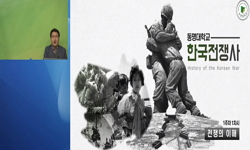This paper analyzes the micro-process of the formation of Article 4, Paragraph 60 of the Armistice Agreement, focusing on North Korean data produced during the Armistice Negotiations. Article 4, paragraph 60 stipulated that a political conference shou...
http://chineseinput.net/에서 pinyin(병음)방식으로 중국어를 변환할 수 있습니다.
변환된 중국어를 복사하여 사용하시면 됩니다.
- 中文 을 입력하시려면 zhongwen을 입력하시고 space를누르시면됩니다.
- 北京 을 입력하시려면 beijing을 입력하시고 space를 누르시면 됩니다.

한반도 평화체제 만들기의 국제정치적 기원: 북한자료를 통해서 본 정전협정 4조 60항의 합의과정 = An International Political Origin of Making a Peace on the Korean Peninsula
한글로보기부가정보
다국어 초록 (Multilingual Abstract)
This paper analyzes the micro-process of the formation of Article 4, Paragraph 60 of the Armistice Agreement, focusing on North Korean data produced during the Armistice Negotiations. Article 4, paragraph 60 stipulated that a political conference should be held after the signing of the Armistice Agreement to discuss the withdrawal of foreign troops on the Korean peninsula, the peaceful settlement of the Korean question, etc. In other words, Article 4, paragraph 60 is the basis for international law that makes the replacement of the Armistice Agreement into a peace agreement on the agenda. Existing research sees Article 4, paragraph 60 of the Armistice Agreement as the United States’ acceptance of the communists’ proposal or the product of a compromise between the two camps over the withdrawal of foreign troops. The peculiarity of this article is that it refers to the withdrawal of foreign troops, unlike other armistice agreements that include a peaceful settlement within the armistice. It is also noteworthy that the withdrawal of foreign troops from the Korean Peninsula is an agenda that North Korea claimed on even before the Korean War. North Korea, which defined the Korean War as a civil war, insisted on immediate withdrawal of foreign troops along with China during the armistice negotiations, but the U.S. refused to accept it. The agenda of East Asian regional issues related to peace on the Korean Peninsula raised by North Korea and China was dealt with as ‘etc.’ due to the opposition from the U.S.
동일학술지(권/호) 다른 논문
-
미국패권 변화의 동학과 세계체계분석의 경계들: 이론적 대안 모색을 위한 시론
- 경남대학교 극동문제연구소
- 공민석
- 2021
- KCI등재
-
- 경남대학교 극동문제연구소
- 반길주
- 2021
- KCI등재
-
김정일의 권력 승계 과정에 대한 연구: ‘216’의 정치상징화 지속과 북베트남의 교훈을 중심으로
- 경남대학교 극동문제연구소
- 김상범
- 2021
- KCI등재
-
아베 정권기 개헌 실패의 분석: 개헌과정의 합의제적 특성과 개헌 프레임의 모순을 중심으로
- 경남대학교 극동문제연구소
- 김성조
- 2021
- KCI등재




 KCI
KCI






